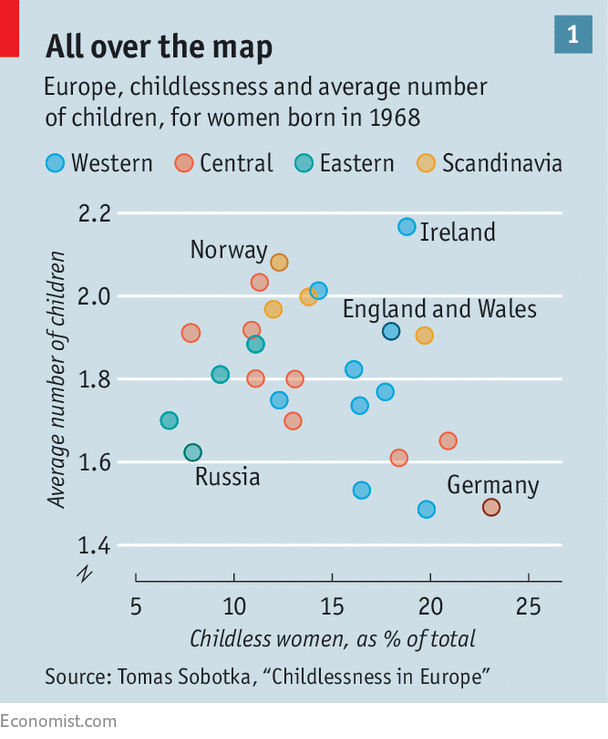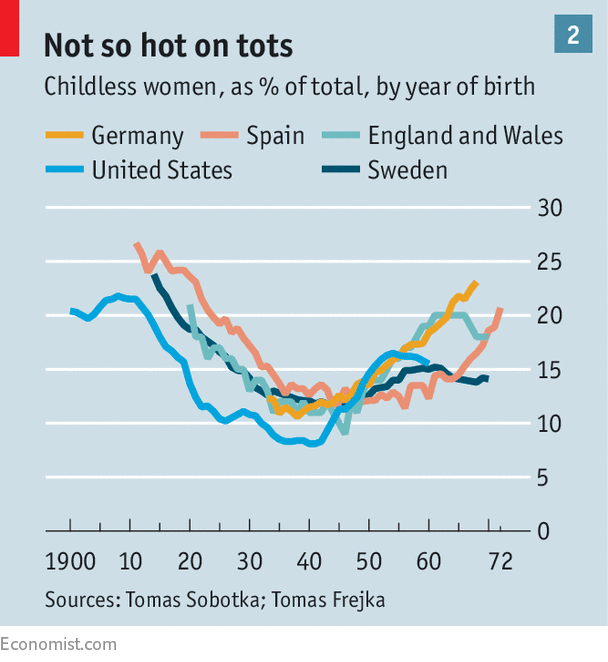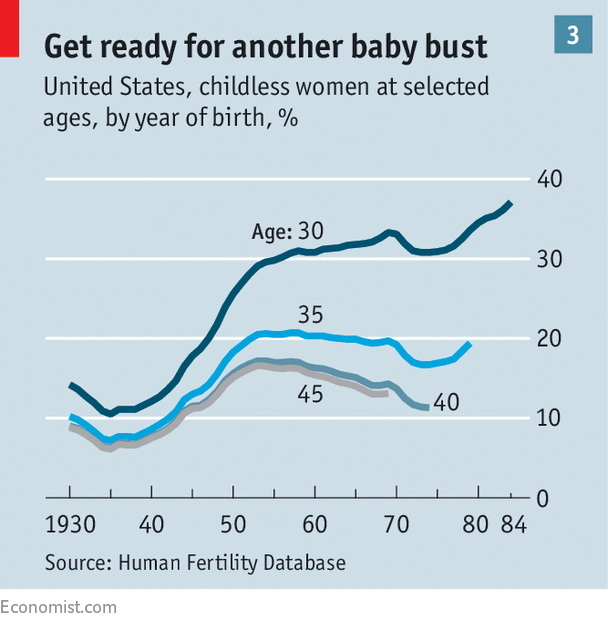POCKET LIVING has been building and selling small flats in London since 2005. The flats have many of the things that young, single people want, such as bicycle storage, and lack the things they do not, such as large kitchens and lots of bookshelves. At first, Pocket expected that most buyers would be in their late 20s, says Marc Vlessing, the firm’s boss. Instead the average age is 32, and rising (<это ссылка на статью в экономисте).
У нас же продаёцо токо крыша над главой, плохая, но дорого
A growing number of city-dwelling Europeans are in the same situation. Just 9% of English and Welsh women born in 1946 had no children. For the cohort born in 1970—who, barring a few late surprises, can be assumed to be done with babies—the proportion is 17%. In Germany 22% of women reach their early 40s without children; in Hamburg 32% do.
по ирландским данным 19 века, вроде, 1/5-1/4, каким? откуда помню? но помню же
Mass childlessness is not a sign of demographic collapse, nor is it remotely novel. It would be more accurate to say that rich countries are updating a long tradition.
Many countries that have lots of childless women today had even higher rates in the early 20th century.
У нас же продаёцо токо крыша над главой, плохая, но дорого
A growing number of city-dwelling Europeans are in the same situation. Just 9% of English and Welsh women born in 1946 had no children. For the cohort born in 1970—who, barring a few late surprises, can be assumed to be done with babies—the proportion is 17%. In Germany 22% of women reach their early 40s without children; in Hamburg 32% do.
по ирландским данным 19 века, вроде, 1/5-1/4, каким? откуда помню? но помню же
Mass childlessness is not a sign of demographic collapse, nor is it remotely novel. It would be more accurate to say that rich countries are updating a long tradition.
Many countries that have lots of childless women today had even higher rates in the early 20th century.
That reflects deep-rooted social norms. In pre-industrial western Europe, men and women did not marry while they were maids or apprentices, but only when they could set up households of their own.
“It is poverty only which makes celibacy contemptible,”
explained the heroine of Jane Austen’s novel, “Emma”.
Но это в прощлом :) теперь всё то же самое, только наоборот
хорошее (но реткое) объяснение бездетности: не хотят, не любят (ваще хор статейко)
Researchers at Stockholm University have found that 33% of Swedish women born in the late 1950s who studied the social sciences did not have children, compared with 10% of primary-school teachers and just 6% of midwives.
In liberal Anglo-Saxon countries, though, middle-aged childless people appear to be slightly happier than parents.
класс:
Men are erratic.
Men are more likely to remain childless because women do not view them as good boyfriend material—let alone good husband or father material.



No comments:
Post a Comment